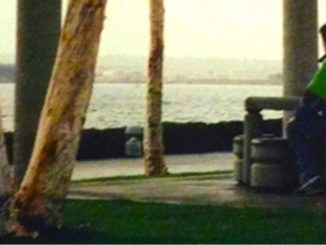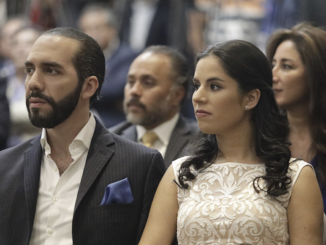
Reflections,
Phil Dolby – Licence CC BY-SA 2.0
Myself and my colleague Captain Davis are in the constituency office of Sleescale MP, Major Sir Fergus McDee MC. He is standing at the window facing into the room, eying us up. His secretary, Miss Sophia, has been dismissed from the room. It is 1984. Orwell’s predicted war with Eurasia has been replaced by a miner’s strike. The associated realpolitik pushes truth and language to their limits as prophesied. We return the MP’s stare. The talk is fittingly Orwellian, being of protocols and a former prime minister’s reputation about to be re-written.
“Fairly soon, Sir Fergus,” I say, “your friend, colleague and former party leader, Maurice Harold Macmillan, the first Earl of Stockton is going to stand up in House of Lords. He will open his mouth and make a fool of himself to the accompaniment of an almighty nothing.”
Sir Fergus raised an eyebrow and spoke from one side of his mouth in contempt,
“Is he now?”
“Yes, he is,” I replied, “and you’re going to be part of the humiliating silence.”
“Is the clairvoyance supposed to impress me, Worth?”
“Crystal ball gazing doesn’t come into it, Sir Fergus, his speech has already been administered to me down the phone line from London, in a urine-soaked call box beside a cobbled road in this very fine town you represent. Careless talk and all the rest. The finest men in the world, is what his Lordship is going to call the striking hoards on the picket lines battering both the constabulary and plainclothes chaps like Davies here. All from the safety of his green bench in the Lords.”
“And what if he’s right?” Retorted the older man, “Come on Worth, you realise Thatcher’s gone too far. There’s a compromise to be had before the country pulls itself to bits. Been underground? They deserve few more quid and we certainly need the coal, given the likely approach of another Ice Age. And if half the mines are kept open as social clubs for the unions, does it matter in the scheme of things?”
“Not what it says in the Protocol,” I said tetchily, hoping my tone didn’t betray a hint of bluff. “And although Johnny public and Johnny voter mustn’t find out about such things, the Protocol is the scheme of things.”
I changed tack, picking upon a nice little piece of self-interest he’d accidentally reminded me to.
“In this constituency, you might benefit from less coal and more nuclear, given the presence of the atom plant and its allied industries.”
“Can’t have too many jobs in a constituency, Worth, especially when you’re an MP. Peter doesn’t have to be bled to death on the altar of Thatcherism to feed Paul’s blood lust. Not in the political actualité of real-world grey areas and compromise. Davies, extract him from his phone box and library books and give him some people to manage.”
“That’s not what’s contained in the Protocol and the Protocol is what we’re supposed to be following,” I reminded him.
Sir Fergus’ stance altered in triumph. He folded his arms in front of him. His forehead furrowed as he lowered his eyebrows.
“Are you sure that you understand what you’re talking about?” He growled.
Sat at my side, Davies winced as though witnessing a dear friend or relative making a horrible mistake. My body began to tense and sweat. I was about to tell a much older man, an MP and a Second World War tank battle hero what he could and couldn’t do. I was going to be unsubtle. All diplomacy includes “or else” but there is no guarantee that it should succeed. Was I on firm enough ground? No matter what the constitution of my bone and sinew, my memory forced me back a mere two years (although it seemed a lifetime longer), to an important night in Dolphin Square when accompanied by another of my colleagues, Miss Natasha Williams.
***
England was ablaze, as though celebrating again the defeat of an Armada. The land shone as if by beacon light, length and breadth, with chaps of a certain age, often in bright golf club jumpers, swarming and calling like roosting starlings. They propped up bars, standing rounds with crisp fivers slipped from pockets busy with Jaguar keys and cheap leather wallets from Spanish markets next to four-star Costa hotels. Neat barmaids, called Jane, or Janet or Catherine, with big hair and impressive cleavage, sliced lemon for their gin whilst trying not to be deafened by their chorus.
“Bloody marvellous.”
“Just what the country needed.”
“Bloody Argies.”
“Bloody Irish.”
“Thank God for Maggie.”
“Roll on the election.”
The country had come through the Falklands war rejuvenated and a type of victory had been declared over the manufacturing unions across the accumulated rubble of closed tin-bashing factories. Doubters were directed towards green shoots of economic recovery trumpeted by the press barons every day. An entrepreneur appeared here. A bank returned healthy profits there. A seedbed of optimism was being sown in place of the discontented labour strife that had nearly brought the country to its knees three winters previously.
On the evening of the 9th of June 1983, the nation gathered before their televisions. It was election night.
At Dolphin Square, myself and Natasha walked along the enclosed balcony beside the complex’s Art Deco swimming pool and past the overspill dining tables towards the raucous noise coming from our department’s private party in the packed bistro. Inside was all Union Jack bunting, balloons and inflated coloured ‘implements’ from a machine in the gents.
Our spirits weren’t as high. In fact, neither of us wanted to be there but felt obliged to show face. Being provincial, we were uneasy at the bourgeois triumphalism of the capital and aware of another country hundreds of miles from Euston and Paddington respectively.
We sat at the back, in a corner sofa as far away from the bar as possible, tucked behind a wobbly table that held a tin ashtray and our glasses of mineral water. The TV was in the opposite corner, held like an idol on a high wooden stand. Its blurry colour tube was encased in a teak cabinet with a right door but two empty dangling hinges on the left-hand side. The volume was at full, its commentary booming and distorted. Between it and ourselves were knots of guffawing suits whose drinks were raised in cheery salutation after cheery as the results came in. Victory after Tory victory announced Mrs Thatcher’s vitally important second term and her resplendent working majority. The opposition, split and chaotic had been routed.
“Thing is,” I murmured to Natasha, “Thatcher’s share of the vote’s gone down. So much for a Falkland’s factor, should be called the Balkanised opposition and first-past-the-post system factor.”
“Yes, Einstein,” she responded dismissively.
“Country’s as divided as ever. We’re going to need another war.”
She hushed me, it was dangerous talk. Touchingly, she placed a finger across my lips just as a grainy picture showed the good people of Hepplethwaite, from their impressive vaulted Victorian town hall, return yet another unlikely Conservative MP.
A recent retiree, who I knew only by sight, pushed through the crowd, his hand squeezing shoulders to part a way towards our corner. I offered him my seat, but it was declined. Preferring to be down on his haunches between us, he splashed a half a measure of whiskey and lime over Natasha as he plonked his glass boozily onto our table.
“Never mind, both,” he addressed us, “Strong government, proper governance and all that. Better the devil you know than some kind of a vacuum. Job done, best for the country don’t you think? I understand why you hate Thatch but you’ll come round to it. The drunkenness of youth etcetera.”
He slapped me on the shoulder and put his other hand on Natasha’s leg. Nodding and smiling he said something inaudible in a slow, precise, deep voice, moulded by too much nicotine, alcohol and too many secrets. His lips, small and concealing a tongue unable to slip, fringed a tiny mouth surrounded by dark 11 pm stubble. Lines creased an impish face beneath black hair, parted to the left as if by a plumb line. He leaned forward in confidence, obliging myself and Natasha to do the same.
“Exciting times for you two,” he whispered. “Acquaintance of mine’s boy’s in the Army. Commissioned, not the brightest, local regiment up the north. Walked into a drill hall one day, took a left turn instead of a right. Marched straight into something. Doors should have been triple-locked, weren’t for some reason. Stumbled in on the whole thing, was sworn to secrecy but couldn’t keep it shut. Not Major material never mind Colonel, obviously. I’m a bit pickled and completely out of the game, doesn’t matter to me anymore. You’ve heard gossip of a protocol?”
We hadn’t, we both looked blank, this was an unusual indoctrination even by our own department’s eccentric standards.
“Oh, better tell you all about it then.”
To be continued…
The Goodnight Vienna Audio file
Audio Player



